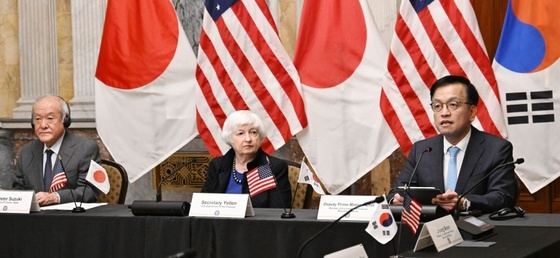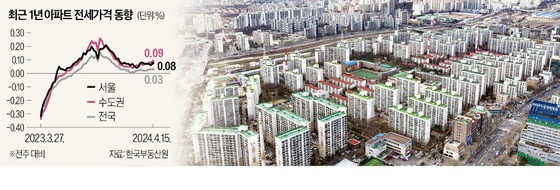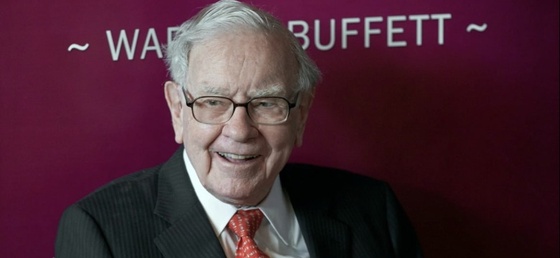[Global View] 중국 증시혼란, 제자리 찾는 과정

우선 중국의 경기 둔화는 예상치 못한 일이 아니었다. 지난해 중국 경제성장률(6.9%)은 좀 낮아지긴 했지만 여전히 세계 주요국 경제성장률보다 높았다. 또 미국 자동차회사 제너럴모터스(GM) 등은 지난해 중국 시장에서 사상 최대 매출을 올렸다. 중국 소비자 지출도 상당히 높은 수준이다. 단순히 신용팽창에 기인했다고만 보긴 어렵다.
그렇다면 중국 증시와 외환시장은 왜 혼란을 겪었을까. 이는 금융시장을 둘러싼 다음 세 가지 실험적 상황과 관련해 시장이 ‘제자리를 찾아가는 과정’으로 이해해야 한다.
국제화 필요한 中 금융시스템
첫째, 중국 정부는 정치·경제적 목적으로 주식시장에서 개인이 돈을 빌려가며 투자에 나서도록 부추겼다. 지난해 상반기까지 중국 증시에 큰 거품이 생겨난 원인이다. 둘째, 중국 개인투자자들은 자신의 분석 역량에 기반해 투자한 게 아니라 중국 정부를 믿었다. 셋째, 중국 기업은 지속적으로 위안화 가치가 미국 달러 대비 절상될 것이고 미국의 기준금리가 낮은 수준을 유지할 것이라는 가정 아래 투자해왔다. 이 세 가지 상황은 기본적으로, 이론적으로, 현실적으로 제대로 계산된 것으로 볼 수 없다.
지금까지 중국 금융은 중앙집중적 시스템과 증시를 통해 실물경제를 지원하는 역할에 머물렀다. 이제 중국 정부는 국제화한 중국 경제와 성장하는 서비스 부문에 맞게 금융 시스템을 발전시켜야 하는 과제를 안고 있다. 그리고 다른 국가들의 과제는 금융부문 균형을 찾기 위한 이 같은 중국의 노력이 헤지펀드의 불확실한 투기로 변질하지 않도록 지원하는 것이다. 중국의 경제, 금융시장, 통화가 질서 있게 국제화한다면 이는 글로벌 경제에 도움이 된다.
중국 주식시장은 해외 투자자에게 열려 있지 않고 중국 기업들이 해외에서 돈을 빌리는 것도 아니어서 중국 금융시장의 위험이 외국으로 퍼져나갈 가능성은 별로 없다. 올 들어 미국과 유럽 증시가 급락한 것은 그 경제권 자체의 경제 전망이 매우 어둡기 때문이다. (중국이 아니라) 저유가로 에너지부문과 은행들이 신용위험에 노출된 미국과 대규모 부실채권 부담을 지고 있는 유럽연합(EU)이 변동성 장세에 책임이 있다는 얘기다.
중앙은행 독립 제도화해야
이제 중국의 신용팽창도, 미국의 돈 풀기 정책도 끝났다. 세계 경제는 예측할 수 없는 단계에 접어들었다. 세계는 중국이 새로운 불안정성의 원천이 될지에 주목하고 있다. 중국이 가장 먼저 해야 할 일은 중앙은행이 정치적 간섭에서 벗어나 독립적인 기관이 됐다는 것을 글로벌 경제 주체들이 믿을 수 있도록 제도화하고, 시장과 잘 소통할 수 있는 적합한 인물을 수장으로 세우는 것이다. 세계 각국은 중국이 세계 금융시장의 안정에 위협이 된다고 보기보다는 중국의 국제화가 더 안전한 세계 금융시스템을 구축하는 기회가 되도록 도와야 한다.
정리=이상은 기자 selee@hankyung.com
한국경제신문은 맨체스터대 비즈니스스쿨(MBS) 교수진의 세계 경제·경영에 관한 기고문을 한 달에 1회 독점 게재합니다. 원문은 한경닷컴(www.hankyung.com) 참조.
Internationalisation of Chinese Finance is an Opportunity to Build a Safer Global Financial System
Ismail Erturk, The University of Manchester Business School
----------------------------------------------------------------------
2016 started with initially alarming turmoil in stock markets around the world. Chinese stock markets and the offshore Chinese currency market in Hong Kong were the twin epicentres of this global financial scare. Although the slowdown of the Chinese economy is a popular explanation by most market commentators for these wild fluctuations in financial markets I do not think that it is a convincing one. Firstly, the Chinese slowdown was not unexpected. Although the latest registered Chinese GDP growth is slightly lower than the average 7% that China had announced as new normal a couple of years ago and it is still much higher than any major economy in the world except India. Also firms like GM announced that they achieved record sales figures in China in 2015. The consumer spending in China, on which the Chinese government is aiming to build the future growth, looks robust and is not credit-driven.
What explains the turmoil in Chinese stock and currency markets is I believe is a due correction that is related to the three experiments with financial markets where a) Chinese government encouraged, for political and economic purposes, leveraged retail investment in stock markets causing a huge bubble especially in 2015; b) Chinese retailinvestors trusted their governments rather than their analytical capabilities to search for yield in the stock markets of China where the authorities and financial institutions have so far failed to create new legitimate both domestic and international asset classes, and c) both state owned and private corporations, in order to achieve financial profits, bet on continuous rise in Chinese Yuan‘s value against the US dollar and low US dollar interest rates.
All these three sectors in the Chinese economy are basically theoretically and practically under-developed in financial calculations. Chinese economic development so far has prioritised real economy by making finance to serve it through a centrally planned banking system and stock market. The challenge now for Chinese authorities is to develop a financial system that suits an internationalising China with growing services sector. And the challenge for the rest of the world is not to turn this Chinese search for a financial balance into a destabilising speculation for likes of hedge funds. An orderly internationalising Chinese economy and financial markets and currency are in the interest of all global economy.
Chinese domestic stock markets are not open to international investment and Chinese companies do not borrow from international banks and therefore there is no contagion risk to the rest of the world from Chinese teething problems in finance. I believe the sharp declines in the stock markets in the US and Europe were due to the grim economic outlook in these economies themselves. So the blame for the turmoil in the early days of 2016 should rest with the policy makers and private sector in the US, where the low oil price has exposed its energy sector and banks to new credit risks, and the EU, where especially the Italian banks have large amounts bad debt that thwarts the ECB’s quantitative easing policies.
With the end of credit expansion in China and monetary loosening in the US the global economy has entered into a new unpredictable period in 2016. The immediate focus in this new period is going to be whether China is going to be a new source of instability for global financial markets and whether it can control its monetary economy and its currency that has just been included in the IMF‘s currency Special Drawing Rights. The very first step that China has to take is to institutionalise a central bank that global players believe is independent of political interference. Such central bank requires a central bank governor who is a household name for the rest of the world and has excellent communicative skills with the markets. But China should not fall into the trap of a central bank-led economy like the US and Europe from the Eurozone to Sweden did after the 2007 crisis.
Creating a service economy at home and internationalising Chinese finance are not a monetary matter. An existential problem faces China- how to tame finance to serve its real economy at home and abroad. The Western financial system that China has far copied is not the right answer. Instead of seeing China as a threat to the global financial stability the world should collectively and cooperatively use China’s internationalisation an opportunity to build a safer global financial system for all.
-
기사 스크랩
-
공유
-
프린트
![[박영실 칼럼] 리더의 이미지 가치를 올리는 퍼스널이미지브랜딩](https://img.hankyung.com/photo/202404/01.36461803.3.jpg)
![[한경에세이] 비상이다. 비상!](https://img.hankyung.com/photo/202404/07.35991182.3.jpg)
![[허원순 칼럼] 22대 국회 '역대 최대' 법률가들의 4가지 책무](https://img.hankyung.com/photo/202404/07.30347388.3.jpg)


![넷플릭스, 가입자 순증 꺾였다…악재 쏟아진 기술주 [글로벌마켓 A/S]](https://timg.hankyung.com/t/560x0/photo/202404/B20240419072033320.jpg)








![[책마을] 스포츠 도박에서 36년째 돈을 딴 사나이](https://timg.hankyung.com/t/560x0/photo/202404/AA.36471350.3.jpg)